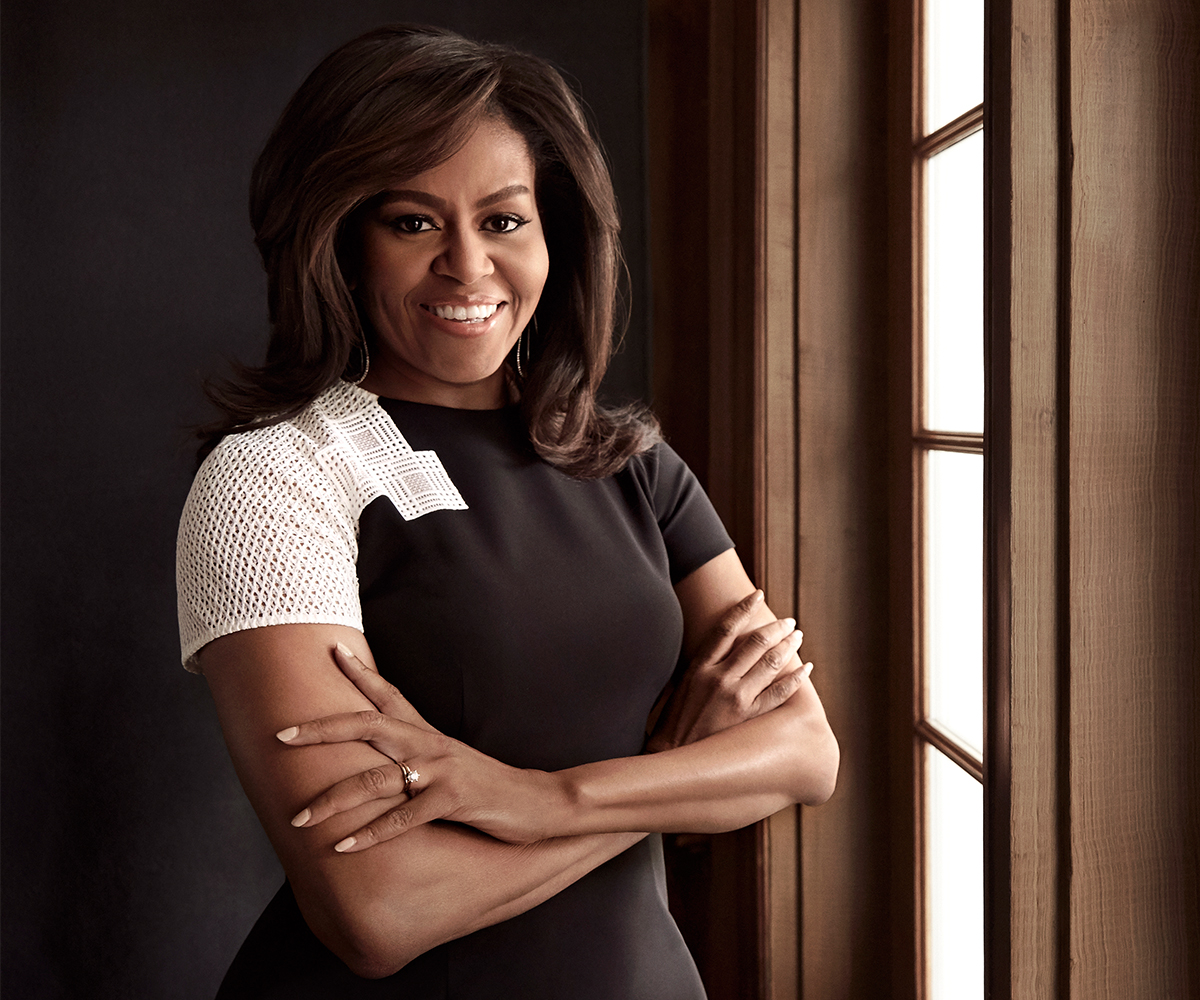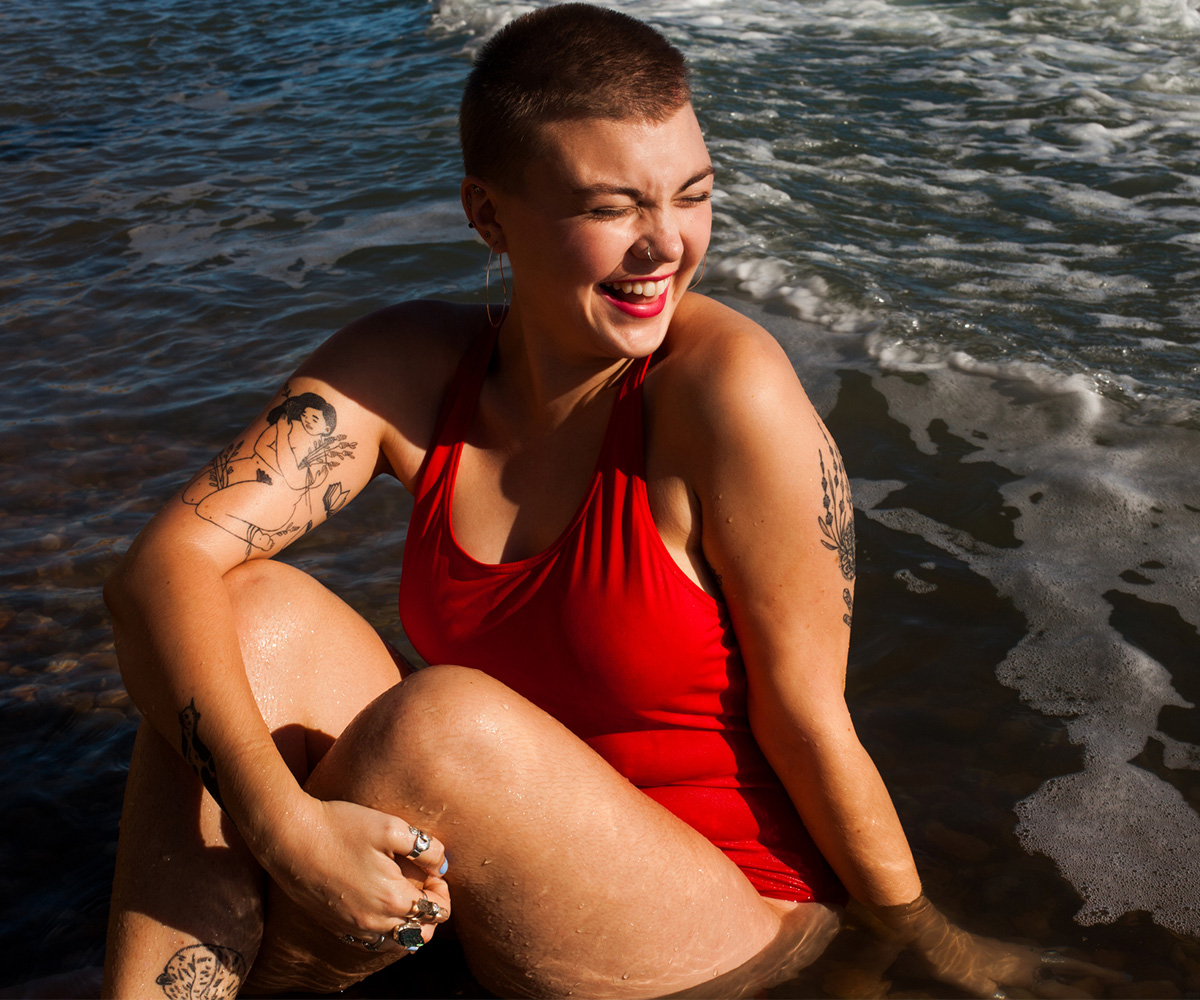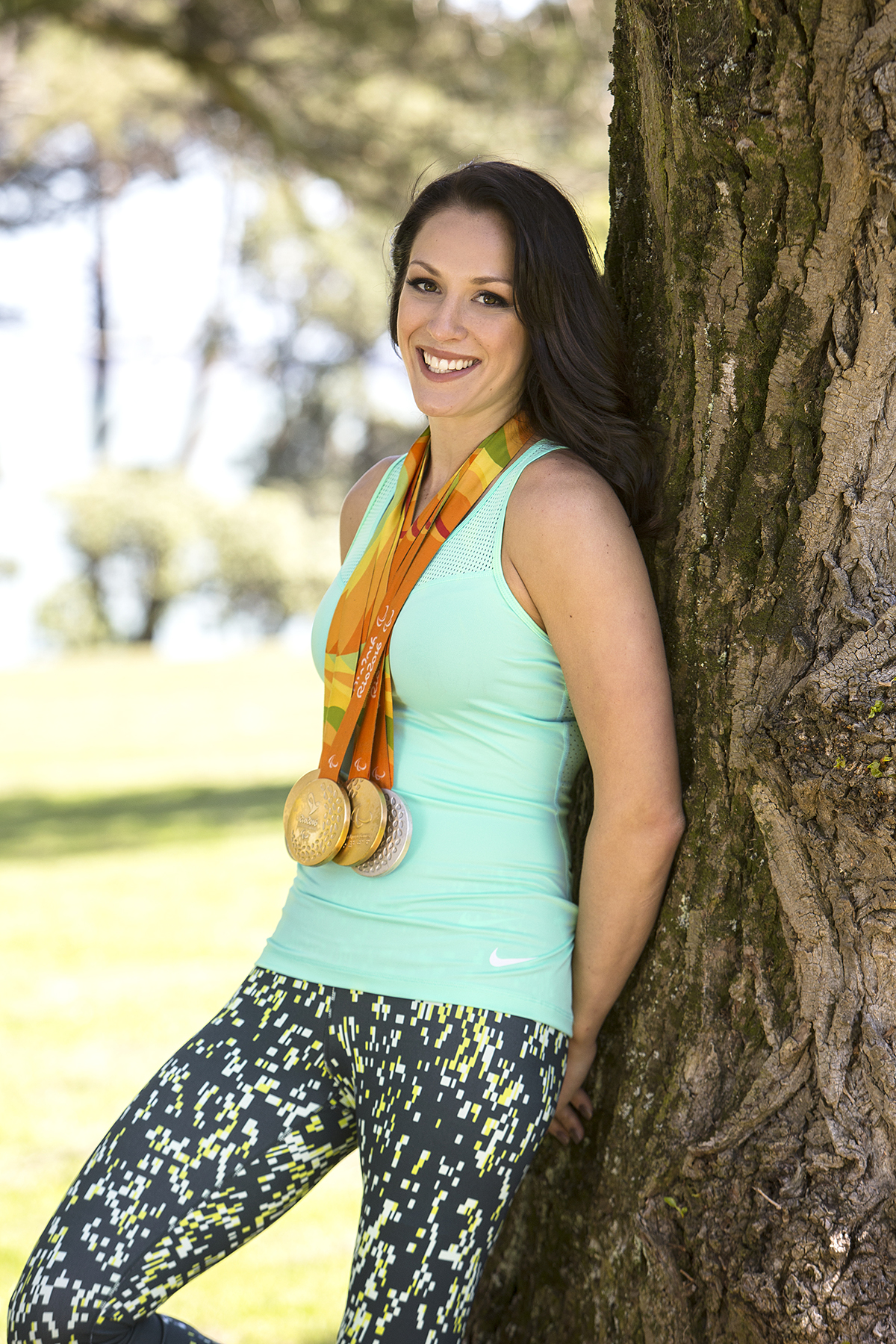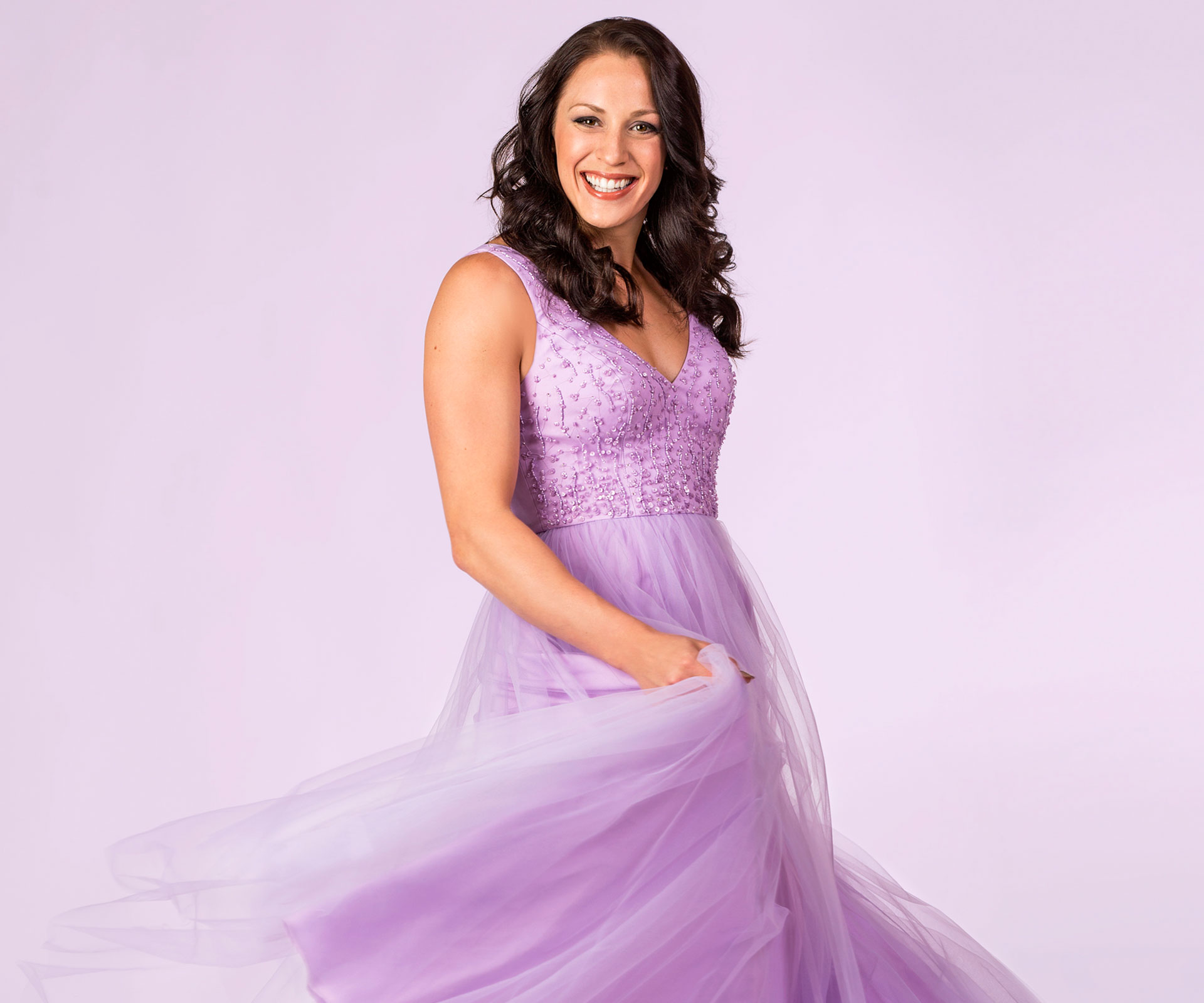Look at any world-class athlete and it’s easy to only see the glorious trophy moments, the collections of medals, fame and global sponsorships.
Yet some of the top sporting stars – take Michael Phelps or Serena Williams – have shown the world that even behind the biggest array of medals or beneath the toughest exterior, any sportsperson is always human first, athlete second.
At just 15, Sophie Pascoe – aka the Phelps of Paralympians, who was recently named New Zealand summer Paralympian of the Decade – was the youngest ever Kiwi to compete at the Paralympics and walk away with four medals.
About to celebrate turning 27 this month, her Paralympic medals count sits at 15, nine of those are gold.
With the Tokyo 2020 Paralympics looming, her training schedule is starting to crank up a few notches and the excitement is brewing, but the physical challenge of powering through length after length isn’t the only battle.
“I definitely went through a low patch over the past two years,” Sophie admits.
“I fell into a bit of a hole. It was right before Nationals. It all just got too hard and I wasn’t enjoying swimming; I wasn’t enjoying the black line as much as I used to.”
Getting on the racing blocks still made her feel electric, but her love of training had flat-lined. The more she thought about Tokyo, the heavier the sense of pressure became.
Thanks to the years of fine-tuning the relationship between her body and mind, she now has an acute sense of self-awareness and knew it was time to reach out for help.
“Even though as an athlete you aim to be a perfectionist at what you do, it’s not always perfect and you need to be able to accept and admit that.”
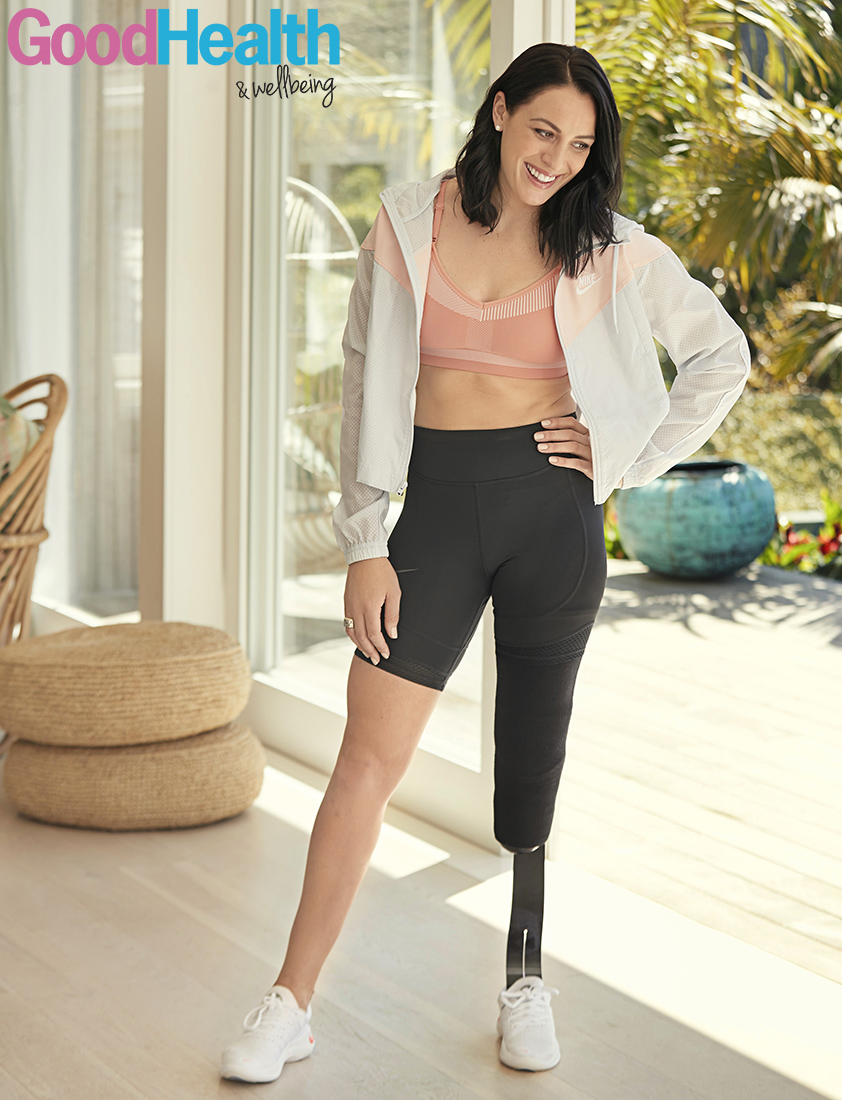
Given the athlete community in her hometown Christchurch is small and very close-knit, mental health is a welcomed and prominent topic of conversation.
“It’s okay if we come and say, ‘You know what, I’m not having a great day today’. It’s okay not to be okay and it’s okay to talk about it,” she explains.
On the world stage, the Sophie Pascoe most people see is a woman with confidence, grit and unshakable discipline, and following her on Instagram gives an inspiring sneak peek into the passion and positivity that are behind all those podium moments.
What only a trusted few people get to see is the softer side of her.
“Sometimes I look in the mirror and I’m like, ‘Yes, Soph!'” she grins, laughing about the time her fearless and cheeky attitude saw her literally jumping the gun at 13 to get disqualified from a race she didn’t want to swim.
Even during the shoot when her prosthetic blade and leg are on show, she seems to have no qualms or hesitation, casually explaining that all the plasters around her foot are to protect her heel which, thanks to a flesh-eating disease she picked up in hospital, no longer has any feeling in it and is prone to blisters to the bone.
“Sometimes, though,” she admits, “I look in the mirror and I struggle to see that fully confident Sophie.
“I do get self-conscious and I think social media plays a huge role in that – we compare ourselves a lot. I still struggle with my appearance occasionally, but I think everybody does deep down. That’s why I use my social media platform to be as honest as possible and for others to see that actually, I am true and real. I am a human being that they feel they can relate to.”
“It’s not necessarily about my prosthetic leg actually; it’s more my right leg because it has such severe scarring. That’s the one that looks different to people and I suppose looks different to me at times. I don’t wish that I had two legs, I wouldn’t ever wish that, but occasionally I do wish my right leg looked normal to other people.
“Every time I walk out the door I get stares. Do I let that affect me? It’s there, don’t get me wrong, but I try to remember on a daily basis what I have been able to achieve, who I have become and what I can give back to others, even though sometimes I do struggle to put a dress on and look in a full-length mirror.”
Being surrounded by a crew of people who have her back has been crucial in those tough moments, and as normal as it might sound, meeting a friend or family member for coffee is a non-negotiable in her weekly schedule – something that reminds her to take a break, recover and unwind.
After reaching out to her family, friends and support network, she was able to make some positive changes and turn things around.

Spicing up her training routine with more land-based workouts like rock-climbing, boxing, gym work, HIIT, aerial silk yoga, and mindful yoga has also been transformative.
Not only has it given her a competitive edge as a swimmer, but it has added a welcome dose of joy and friendship to her life, which she couldn’t find in the pool.
“Getting that social side elsewhere is really important for me now. Looking at a black line is not the most riveting at times – it’s not exactly a social sport,” she says, chuckling about the difficulty of finding a partner who is happy to share her with the pool.
“I went through a period where I solely focused on swimming and I didn’t have very good balance in my life. Looking back though, I don’t regret it because I’ve learned from it the importance of having things in your life other than sport.”
Although she still has a fierce love for fashion and has been chipping away at a qualification in business and management, her dedication to sport hasn’t yet allowed much time for her to discover other passions. When the time does come, she is eager and ready.
“Who knows what and when opportunities might come up, but it’s about taking them when they arise. I took an opportunity when I was eight years old when my coach to date, Roly [Crichton] told me that my talent could represent New Zealand, and look where that has taken me. Opportunities are something you have to grab.”
Each day that Sophie arrives at the pool, one of the hardest moments is when she is standing on the edge eyeing up the water, anticipating the discomfort that’s about to come.
Once she’s in though, she remembers why she’s there.
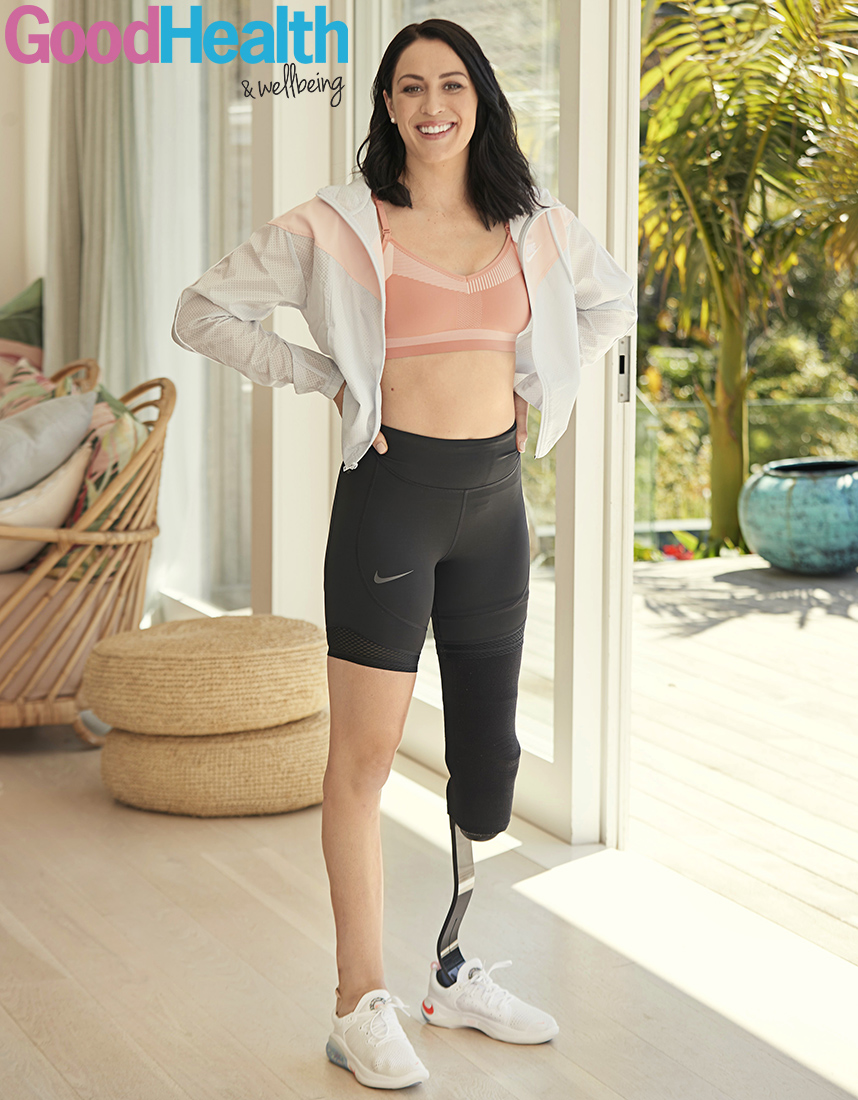
When she was nine, sitting beside her grandfather who was losing his battle with lung cancer, she professed that she wanted to win a gold medal for him.
For many years after, her loved ones were her rocket fuel; her primary source of motivation. That is, until recently.
“My reason why was always for other people. I was always doing it for my family, to make other people proud. Now, my ‘why’ has changed to me. I think that’s been the biggest change in my life. I’m doing this for me and I’m doing it for my legacy.”
“I’ve actually come to understand that at the end of the day, no matter the outcome of the race, my family is still going to love me, I’m still going to have people that love me. I’ve also come to understand that I do have an identity outside of Sophie Pascoe, the athlete.
“We don’t necessarily see that a lot as athletes. We tend to think we’ve only got that one identity and people only identify us as that, but I’m a daughter, a sister, an aunty, a cousin, a niece, a granddaughter, a friend. All of those are my identity as well.”
While she is an admirable role model in so many ways, something that makes her so easy to warm to is her honesty.
“It’s not always rosy – not just for athletes, in anyone’s life – but it’s about taking the positives out of each day. I believe everything happens for a reason. It comes with good and it comes with bad, but it’s how you take those, how you control your emotions and how you can adapt.”
And adapt is exactly what she has done, ever since that frightening day when she was two and her father accidentally rode over her legs with a ride-on lawn mower, leaving her with an amputation below the knee of her left leg and her right severely scarred.
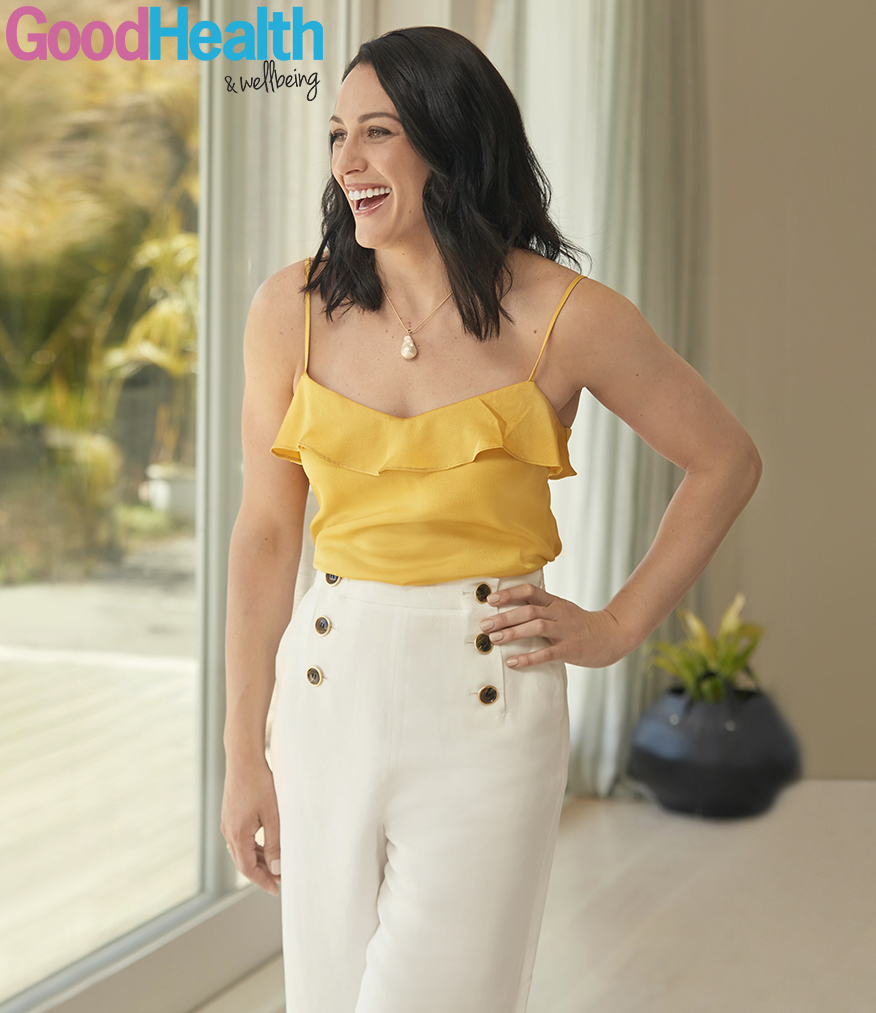
Having a disability was never something that hindered Sophie.
Right from a young age she was the first kid up on the jungle gyms, showing her parents that she was just as capable.
Any time she couldn’t do things the way her peers did, she would simply find another way, and being raised in the exact same way as her older sister had a permanent impact on her outlook and trajectory.
“They made me who I am; to not feel like I have limitations.”
This self-belief hasn’t just altered the course of her own path; it has also provided a light for other people with disabilities.
When upcoming swimmer Ella Benn was in hospital with bone cancer at age nine and lost her leg – coincidentally the same age that Sophie’s Paralympic dream was shared with her dying grandfather – Sophie paid her a visit.
It was a visit that inspired Ella to begin her own sporting journey.
“Now, she wants to create her own legacy,” Sophie beams.
“This year, I got to race with her at Nationals and she could stand up on the podium with me. You can’t beat moments like that, knowing that you’ve positively impacted someone’s life.”
Like any athlete, nutrition is king.
As an ‘Iron Maiden’ for Beef + Lamb New Zealand, her fridge is kept well-stocked and most nights she is dishing up some variation of meat and three veg. Is there a little bit of wiggle room for treats? You bet – it makes her a happier human.
Every summer involves a camping trip to Golden Bay, where her and her best friend swim laps together, incentivised by the thought of the lemon cinnamon bun from The Wholemeal Café that is to follow.
“I don’t let nutrition rule my life and I would never want nutrition to overtake my happiness,” she says, and is aware of how important it is to model a healthy, joyful relationship with food for younger athletes.
“As an athlete, I believe a healthy food diary should consist of 90 per cent nutritional foods and the last 10 per cent can be those occasional treats.”
Now that she’s counting down the months until Tokyo, it’s pretty much head down from here on out.
When she returns, she’ll be continuing with her new celebratory tradition of visiting her travel agent with one simple request. “Book me anywhere.”
It’s an intrepid way to travel solo that has seen her board flights to unique places like Guatemala, Belize and Morocco, but that’s exactly how she likes it when she is more accustomed to the bright lights of major cities.
“With sport, you make friends with people wherever you go, so you understand that friends are all over the world if you want them to be.”
While her swimming career has taken her all over the globe, it has only strengthened her sense of pride in her Kiwi roots.
Historically, not being able-bodied has been a significant barrier to opportunities and acceptance. As much as attitudes have progressed, Sophie says that New Zealand is strides ahead of other countries she has visited.
“I want to inspire young people with disabilities to achieve what they want to achieve and take on the world. Accidents happen on a daily basis, it’s about whether you choose to make something of it that really determines how far you will go.”
